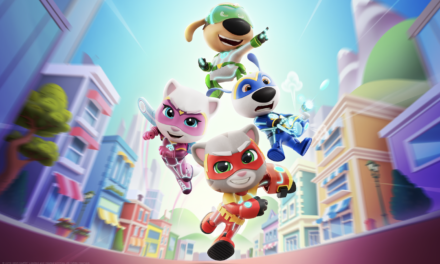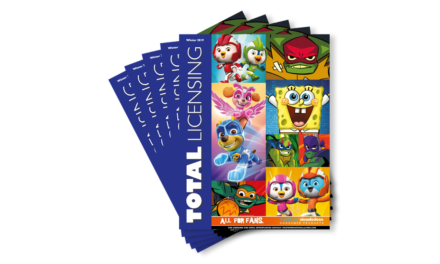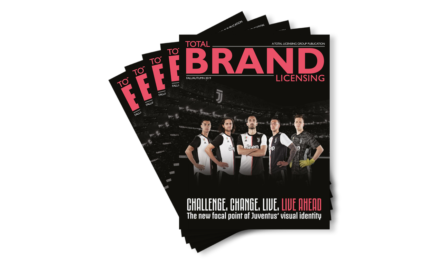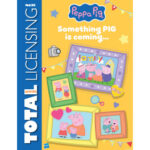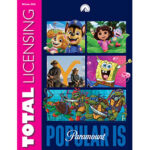
Get ahead on brand protection in the era of Web 3.0 and the Metaverse

By Rob Kriner, Commercial Success Director, Com Laude
The mainstream media and Internet alike are alive with chatter around Web 3.0 and the Metaverse. Indeed, some companies are betting big on this new evolution of the Internet. Facebook for example is so confident on this next iteration of the online world that it’s taken the decision to rebrand to Meta.
Yet despite the prevalence of Web 3.0 and the Metaverse in the tech news pages, these technologies remain perplexing to the vast majority, businesses and consumers alike. In the same way that many are confused by (and wary of) cryptocurrencies and NFTs, so does Web 3.0 and the metaverse still continue to scratch heads.
That doesn’t mean they can be ignored, however. They have the potential to be just as big in the future as ‘Web 2’ is now. User numbers are growing, and the Metaverse market is predicted to reach $800bn by 2024, providing a potentially lucrative new market to businesses.
What do we mean by the Metaverse and Web 3.0, and why do they matter to brands?
Are you in the ‘confused by (and wary of)’ camp? Here’s a quick definition of the two technologies.
In its simplest terms, Web 3.0 is the third generation of the Internet. Whilst it is still evolving, it is broadly defined as being a decentralised online environment with blockchain at its core. Web 3.0 is significant to brands as it allows for brand presence and the sale of digital goods in the metaverse. In this way, the metaverse has the potential to create new virtual experiences for consumers, with the opportunity to generate real-world revenue for businesses.
A few brands are already taking advantage of this new market opportunity in the metaverse. Take Gucci, for example, which recently set up “Gucci Town” on metaverse platform Roblox. In this brand owned area of the metaverse, Gucci has created a digital destination with a “virtual piazza” that offers a series of experiences including mini games, art exhibitions, and (of course) shopping for digital Gucci items to outfit Roblox avatars. Whilst nascent, the opportunity to attract new audiences and sell to new customers is very real.
New technologies need new approaches
Naturally, Web 3.0 and the Metaverse don’t come without their quirks, especially when compared to Web 2.0, and some of the protections that brands currently receive.
Due to their decentralised nature Web 3.0 and the Metaverse are free from the wider regulatory ties that we’ve come to expect from Web 2.0. This has led some naysayers to compare Web 3.0 and the metaverse to “the wild west” of the Internet, whilst other proponents like to favourably think of them as “Switzerland”.
Take domains for example. With Web 2.0, ICANN’s UDRP and Nominet’s DRS here in the UK provide a vehicle with which to challenge domains that infringe on a business’ trademarking or IP. For Web 3.0 and the Metaverse, unfortunately no such protection exists for blockchain domains (the domain name system that operate through) meaning they have the potential to be taken advantage of by brand impersonators. In turn this could lead to all sort of brand protection issues, from scams to counterfeiting.
Brand protection in Web 3.0 and the Metaverse
Considering the future potential of Web 3.0 and the Metaverse, brands should start taking the necessary precautions and lay the foundations to make sure they are protecting their brand and IP. A good place to start is by registering the blockchain domains that correlate to your brand.
Thousands of brand names have already been registered in the blockchain world, and brands looking to get in on the action are finding that their names have already been taken. Since these new blockchain domains lack the traditional trademark protection offered in Web 2.0, organisations should act quickly to reserve their blockchain domains as soon as they can.
The good news is that registrations are relatively affordable, so aren’t a significant commitment. Even if they’re left inactive, they’ll provide peace of mind. In doing so, you’ll be futureproofing your business for what could potentially be the next stage of the commercial Internet, whilst at the same time engaging in a cost-effective hedge should Web 3.0 and the metaverse not quite live up to the anticipated hype.
Still unsure? Get the experts to help
Web 3.0 and the Metaverse is a whole new realm of the Internet, and it’s understandable if you potentially feel unsure about how to approach it. If in doubt, there are trusted domain portfolio managers who have expertise that spans both Web 2.0 and Web 3.0 domains, and can help guide you on your initial journey in securing blockchain domains and your first slice of the future of the Internet.

